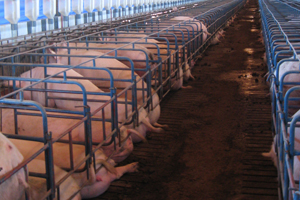US: Sow stall legislation not approved, farmers pleased

America’s hog farmers and the National Pork Producers Council hailed the Connecticut Legislature for not approving ill-advised legislation banning the use of gestation stalls for sows.
The measure would have dictated to the state’s farmers how they raise and care for their animals and had a devastating effect on sustainable agriculture and local family farms.
The vast majority of the country’s small hog farmers use gestation stalls for pregnant sows, which allow for individualised care and eliminate aggression from other sows.
The legislation was pushed by the Humane Society of the United States (HSUS) and other animal-rights groups even though, if approved, it would have prevented farmers from caring for their animals in a way approved by the American Veterinary Medical Association. The AVMA and the American Association of Swine Veterinarians recognize gestation stalls and group housing as appropriate for providing for the well-being of sows during pregnancy. They point out that there is no scientific consensus on the best way to house gestating sows because each type of housing system has inherent advantages and disadvantages.
The Connecticut measure also would have resulted in financial damage to local farmers, and potentially ruined a safe and sustainable source of food for the state’s consumers.
“The bill was a solution in search of a problem,” said NPPC President-elect Dr. Howard Hill, a veterinarian and hog farmer from Iowa. “This is about HSUS using Connecticut to advance its national vegan agenda, and we thank the Connecticut Legislature for not going along with it.
“This is the latest defeat for HSUS; momentum against these ill-advised measures is building,” Hill said. Similar legislation recently was defeated in New Hampshire and Vermont.
Over the past 10 years, HSUS has lobbied other states to pass gestation stall bans. While a few states have enacted bans through ballot initiatives, few state legislatures have approved such a prohibition because of the negative impacts it would have on local producers.
“Decisions about animal well-being and housing should be determined by those who understand the animals and work with them every day,” Hill said.











